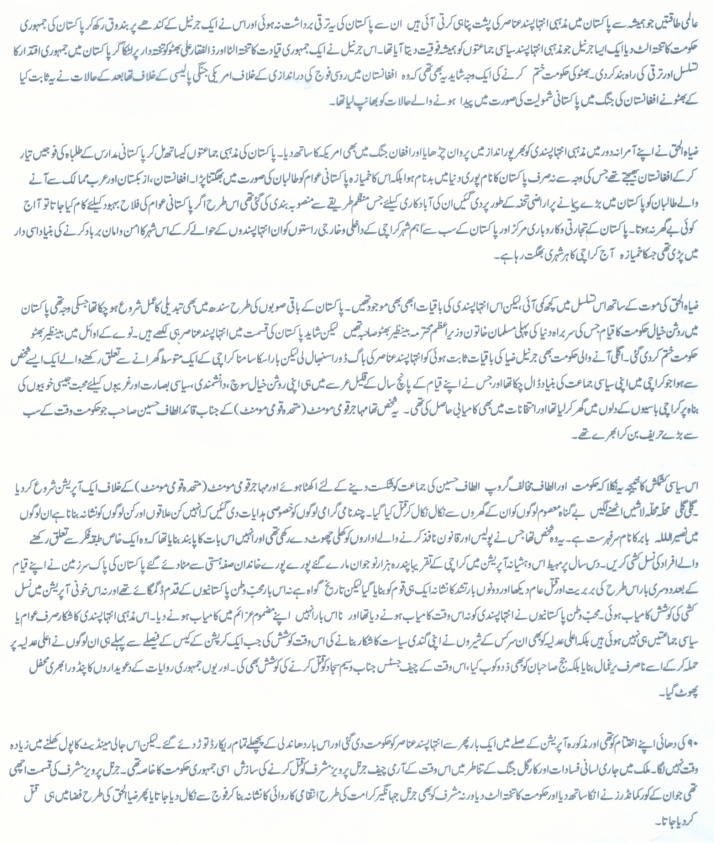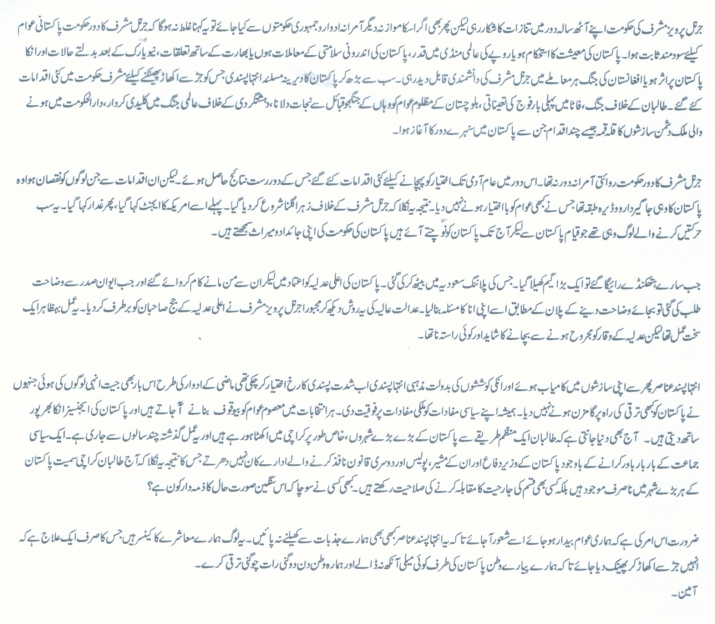By STANLEY FISH

A few weeks ago, the Cardozo School of Law mounted a conference marking the 20th anniversary of Employment Division v. Smith (1990), a case in which the Supreme Court asked what happens when a form of behavior demanded by one’s religion runs up against a generally applicable law — a law not targeted at any particular agenda or point of view — that makes the behavior illegal. (The behavior at issue was the ingestion of peyote at a Native American religious ceremony.) The answer the court gave, with Justice Antonin Scalia writing for the majority, was that the religious believer must yield to the law of the state so long as that law was not passed with the intention of curtailing or regulating his or anyone else’s religious practice. (This is exactly John Locke’s view in his “Letter Concerning Toleration.”)
“To make the individual’s obligation to obey . . . a law contingent upon the law’s coincidence with his religious beliefs” would have the effect, Scalia explains, of “permitting him, by virtue of his beliefs, ‘to become a law unto himself.’” And if that were allowed, there would no longer be a single law — universally conceived and applied — but multiple laws each of which was tailored to the doctrines and commands of a particular faith. In order to have law in the strong sense, Scalia is saying, you can have only one. (“No man can serve two masters.”)
The conflict between religious imperatives and the legal obligations one has as a citizen of a secular state — a state that does not take into account the religious affiliations of its citizens when crafting laws — is an old one (Scalia is quoting Reynolds v. United States, 1878); but in recent years it has been felt with increased force as Muslim immigrants to Western secular states evidence a desire to order their affairs, especially domestic affairs, by Shariah law rather than by the supposedly neutral law of a godless liberalism. I say “supposedly” because of the obvious contradiction: how can a law that refuses, on principle, to recognize religious claims be said to be neutral with respect to those claims? Must a devout Muslim (or orthodox Jew or fundamentalist Christian) choose between his or her faith and the letter of the law of the land?
In February 2008, the Right Reverend Rowan Williams, Archbishop of Canterbury, tried in a now-famous lecture to give a nuanced answer to these questions by making what he considered a modest proposal. After asking “what degree of accommodation the laws of the land can and should give to minority communities with their strongly entrenched legal and moral codes,” Williams suggested (and it is a suggestion others had made before him) that in some areas of the law a “supplementary jurisdiction,” deriving from religious law, be recognized by the liberal state, which, rather than either giving up its sovereignty or invoking it peremptorily to still all other voices, agrees to share it in limited areas where “more latitude [would be] given in law to rights and scruples rooted in religious identities.”
Williams proceeded immediately to surround his proposal with cautionary safeguards — “no ‘supplementary’ jurisdiction could have the power to deny access to the rights granted to other citizens or to punish its members for claiming those rights” — but no safeguards would have satisfied his many critics, including Prime Minister Gordon Brown, who declared roundly that there is only one common law for all of Britain and it is based squarely on “British values.”
Prompted by Williams’s lecture and the responses it provoked, law professors Rex Ahdar and Nicholas Aroney have now put together a volume, to be published in 2011, under the title “Shari’a in the West,” a collection of learned and thoughtful essays by some of the world’s leading scholars of religion and the law. The volume’s central question is stated concisely by Erich Kolig, an anthropologist from New Zealand: “How far can liberal democracy go, both in accommodating minority groups in public policy, and, more profoundly, in granting official legal recognition to their beliefs, customs, practices and worldviews, especially when minority religious conduct and values are not congenial to the majority,” that is, to liberal democracy itself?
This is exactly the question posed by John Rawls in a preface to the second edition of “Political Liberalism,” his magisterial account and defense of liberal political principles: “How is it possible for those affirming a religious doctrine that is based on religious authority . . . also to hold a reasonable political conception that supports a just democratic regime?” The words to stumble on are “reasonable” and “just,” which at once introduce the requirement and indicate how hard, if not impossible, it will be to meet it: “reasonable” means confirming to rational, not religious, principles; “just” means respecting the equality of all, not just male or faithful, individuals.
With these concepts as the baseline of “accommodation,” accommodation is going to fall far short of anything that will satisfy the adherents of a religion that “encompasses all aspects of public and private law, hygiene, and even courtesy and good manners” (A. A. An-Na’im). In liberal thought these areas are the ones in which the individual reigns supreme and the value of individual choice is presupposed; but, as Ann Black explains, “Muslims do not conceptualize Islam in terms of the Westernized sociological categorization of religion which places the individual at the centre of all analyses.”
And so, perhaps predictably, the essays in Shariah in the West tack back and forth between the uneasy alternatives Williams names in his lecture — “an assumption on the religious side that membership of the community . . . is the only significant category,” and on the other side secular government’s assumption of a “monopoly in terms of defining public and political identity.” These assumptions seem to be standing obstacles to the ability of secular Western states to think through the problem presented by growing Muslim populations that are sometimes militant in their demand to be ruled by their own faiths and traditions.
On the one hand, there is the liberal desire to accord one’s fellow human beings the dignity of respecting their deepest beliefs. On the other hand, there is the fear that if those beliefs are allowed their full scope, individual rights and the rule of law may be eroded beyond repair. It would seem, at least on the evidence of most of these essays, that there is simply no way of “finding a viable path that accommodates diversity with equality” (Ayelet Shachar), that is, accommodates tolerance of diverse religious views with an insistence that, in the last analysis, the rights of individuals cannot be trumped by a theological imperative. No one in this volume quite finds the path.
Except perhaps theologian and religious philosopher John Milbank who puts forward, the editors tell us, “the striking argument that only a distinctly Christian polity — not a secular postmodern one — can actually accord Islam the respect it seeks as a religion.” The italicized phrase is key: the respect liberalism can accord Islam (or any other strong religion) is the respect one extends to curiosities, eccentrics, the backward, the unenlightened and the unfortunately deluded. Liberal respect stops short — and this is not a failing of liberalism, but its very essence — of taking religious claims seriously, of considering them as possible alternative ways of ordering not only private but public life.
Christianity, says Milbank, will be more capable of deeply respecting Islam because the two faiths share a commitment to the sacred and to a teleological view of history notably lacking in liberalism (again, this is not a criticism but a definition of liberalism): A “Christian polity can go further in acknowledging the integral worth of a religious group as a group than a secular polity can.” Christianity can acknowledge the worth of Islam not merely in an act of tolerance but in an act of solidarity in the same way that Christian sects can acknowledge each other. If you are a Catholic, Milbank explains, “and you do not agree with the Baptists you can nevertheless acknowledge that, relatively speaking, they are pursuing social goals that are comparable with, and promote a shared sense of human dignity” as defined by a corporate religious identity. Liberalism can acknowledge individual Muslims or individual Baptists or individual Catholics, but the liberal acknowledgment detaches these religious believers from their community of belief and turns them into citizens who are in the things that count (to liberalism) just like everyone else.
“Liberal principles,” declares Milbank, “will always ensure that the rights of the individual override those of the group.” For this reason, he concludes, “liberalism cannot defend corporate religious freedom.” The neutrality liberalism proclaims “is itself entirely secular” (it brackets belief; that’s what it means by neutrality) and is therefore “unable to accord the religious perspective [the] equal protection” it rhetorically promises. Religious rights “can only be effectively defended pursuant to a specific and distinctly religious framework.” Liberal universalism, with its superficial respect for everyone (as long as everyone is superficial) and its deep respect for no one, can’t do it.
If that is so, then the other contributors to this volume are whistling “Dixie,” at least with respect to the hope declared by Rawls that liberalism in some political form might be able to do justice to the strongly religious citizens of a liberal state. Milbank’s fellow essayists cannot negotiate or remove the impasse he delineates, but what they can do, and do do with considerable ingenuity and admirable tact, is find ways of blunting and perhaps muffling the conflict between secular and religious imperatives, a conflict that cannot (if Milbank is right, and I think he is) be resolved on the level of theory, but which can perhaps be kept at bay by the ad-hoc, opportunistic, local and stop-gap strategies that are at the heart of politics.
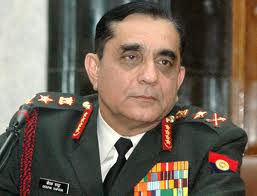
 The range of Pakistan’s India-centric missiles. The Pakistani missile program is helping it develop a space program.
The range of Pakistan’s India-centric missiles. The Pakistani missile program is helping it develop a space program.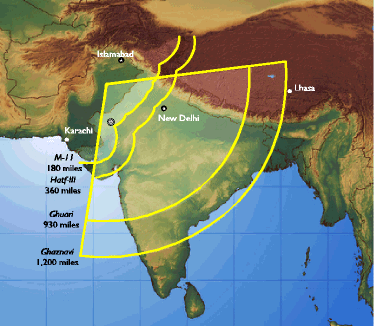

 The Federal Minister of Railways, Mr.
The Federal Minister of Railways, Mr.  good
good 



 formed the first governments of Pakistan. They were all indirectly elected members of the first Constituent Assembly which was to frame the new country’s constitution, and hold general elections after its passage.
formed the first governments of Pakistan. They were all indirectly elected members of the first Constituent Assembly which was to frame the new country’s constitution, and hold general elections after its passage. to be less corrupt and less ineffective than politicians.
to be less corrupt and less ineffective than politicians.

 nationalist party, the Awami National Party (ANP), have been issuing strange statements. The party chief, Asfandyar Khan, described NATO’s pursuit of terrorists into FATA as a “clear violation of international law and a blow to Pakistan’s sovereignty”. The party’s provincial president, Afrasiab Khattak, condemned the US drone attacks on terrorists in FATA and claimed that innocent tribespersons were being killed in the drone strikes. ANP’s senior provincial minister, Bashir Bilour, also condemned the US drone strikes and NATO incursions into FATA in pursuit of the terrorists who retreated into their safe havens in FATA following attacks in Afghanistan. Above all, the Khyber Pakhtunkhwa Assembly condemned NATO incursions and the US drone attacks.
nationalist party, the Awami National Party (ANP), have been issuing strange statements. The party chief, Asfandyar Khan, described NATO’s pursuit of terrorists into FATA as a “clear violation of international law and a blow to Pakistan’s sovereignty”. The party’s provincial president, Afrasiab Khattak, condemned the US drone attacks on terrorists in FATA and claimed that innocent tribespersons were being killed in the drone strikes. ANP’s senior provincial minister, Bashir Bilour, also condemned the US drone strikes and NATO incursions into FATA in pursuit of the terrorists who retreated into their safe havens in FATA following attacks in Afghanistan. Above all, the Khyber Pakhtunkhwa Assembly condemned NATO incursions and the US drone attacks.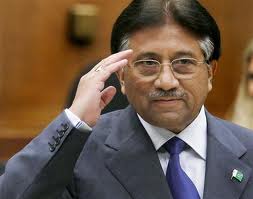 Pervez Musharraf is the former military ruler of Pakistan. He wasn’t a politician, he was a general. By his own admission in his autobiography, he wasn’t exactly a servile officer. But then, that’s the kind of character you want in a man who has to get down and do the dirty business of taking tough decisions. Day after day, I seem to be moving towards an increasingly pro Musharraf stance because he charms better than Nawaz Sharif, is more articulate when need be than Benazir Bhutto, and is utterly brutal and savage when time calls for it.
Pervez Musharraf is the former military ruler of Pakistan. He wasn’t a politician, he was a general. By his own admission in his autobiography, he wasn’t exactly a servile officer. But then, that’s the kind of character you want in a man who has to get down and do the dirty business of taking tough decisions. Day after day, I seem to be moving towards an increasingly pro Musharraf stance because he charms better than Nawaz Sharif, is more articulate when need be than Benazir Bhutto, and is utterly brutal and savage when time calls for it.
